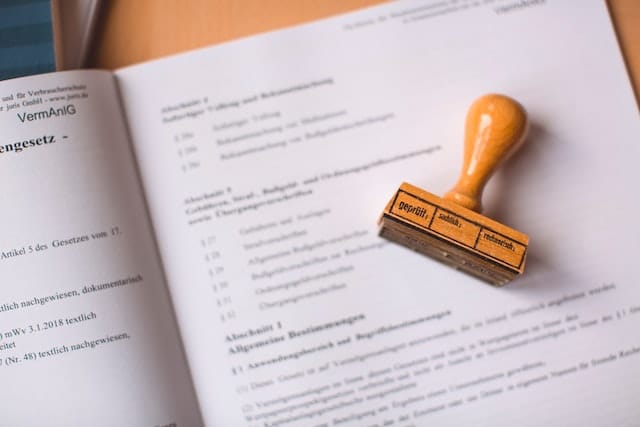Verification of documents
The verification of documents is an important process that involves confirming the authenticity and accuracy of a document. In the USA, verification of documents is often required for a variety of purposes,s such as:
Employment: Employers may require candidates to provide verified documents such as educational certificates, work experience letters, and identification documents before hiring them.
Immigration: The US government requires various documents to be verified before granting visas, green cards, or citizenship.
Legal purposes: Legal proceedings such as court cases, contracts, and property transactions often require verified documents.
Education: Students may need to provide verification of documents such as transcripts and diplomas to enroll in colleges or universities.
To verify a document, one needs to check the source of the document and confirm that it is genuine as per Form i485. The process may involve checking the signature, the seal, the language, and the content of the document. There are also various online document verification services that can help individuals and organizations verify documents.

Common document fraud
It is a serious crime that involves the creation or use of fake or altered documents for unlawful purposes. These frauds can take many forms and is a major concern for various government agencies, businesses, and individuals. Some examples include:
Counterfeiting: is the creation of fake documents that are designed to look like genuine ones. This can include passports, driver’s licenses, and other forms of identification.
Forgery: The alteration of a genuine document, such as changing the date or signature, to make it appear as if it is something it is not.
Identity theft: is the use of someone else’s personal information to create fake documents or to obtain genuine documents in their name.
Fraudulent claims: The use of fake documents to make false claims, such as submitting fake medical bills to an insurance company or submitting fake receipts for reimbursement.
Document fraud can have serious consequences, including legal prosecution, fines, and imprisonment. It can also result in financial loss and damage to one’s reputation. To protect against document fraud, individuals and organizations should take precautions such as verifying the authenticity of documents, securing sensitive information, and reporting any suspicious activity to the appropriate authorities
What is document validation?
It is the process of verifying the authenticity and accuracy of a document to ensure that it is valid and legally acceptable. In the USA, document validation is important for many reasons, including legal compliance, fraud prevention, and security.
To validate a document, several factors may be considered, including the document’s origin, format, content, and signatures. Some common methods include:
- Checking for security features.
- Examining the document’s content.
- Confirming the identity of the signatory.
- Consulting experts.
Document attestation
It is the process of certifying the authenticity of a document by an authorized government or non-government authority. This is typically required when presenting a document for use outside of its country of origin, such as when applying for a job, visa, or educational program in another country. In the USA, document attestation is commonly referred to as document authentication and legalization.
The process of document attestation may vary depending on the country or organization requesting the document. However, the general process in the USA typically involves the following steps:
Notarization: The first step in document validation is to have the document notarized by a licensed notary public. This involves the notary verifying the identity of the document holder and certifying that the document is authentic.
State Certification: After notarization, the document must be certified by the Secretary of State of the state where the notary is licensed. This certification confirms that the notary is authorized to perform notarization in that state.
US Department of State Certification: If the document is intended for use in a foreign country that is a party to the Hague Convention, it must be certified by the US Department of State. This involves verifying the signature of the state official who certified the document.
Embassy or Consulate Legalization: Depending on the requirements of the foreign country, the document may need to be legalized by the embassy or consulate of that country in the USA. This involves the embassy or consulate verifying the authenticity of the document and affixing their seal or stamp.
What are proofs of identity documents?
Proof of identity documents are official documents that are used to confirm a person’s identity, typically for legal or administrative purposes. In the USA, there are several types of documents that can be used as proof of identity, including:
- Driver’s license:
- Passport:
- State ID:
- Birth certificate:
- Social Security card:
- Immigration documents:
When using proof of identity documents, it is important to ensure that the documents are valid and up-to-date. In some cases, additional documents or identification may be required, depending on the specific situation or organization requesting the proof of identity. It is always a good idea to check the requirements in advance and to bring multiple forms of identification if possible.
Key takeaways
- Verification of documents is an important process in the USA that ensures the credibility of documents and helps prevent fraud and forgery
- Verification of documents is a critical process in the USA for ensuring that documents are legally acceptable and free from fraud.











